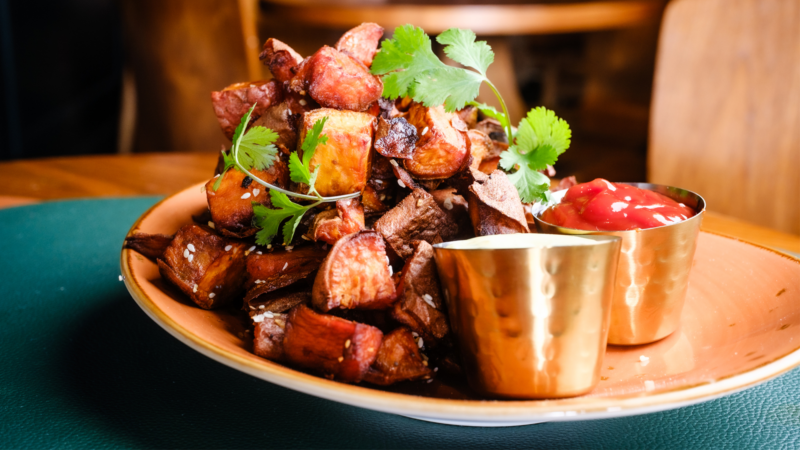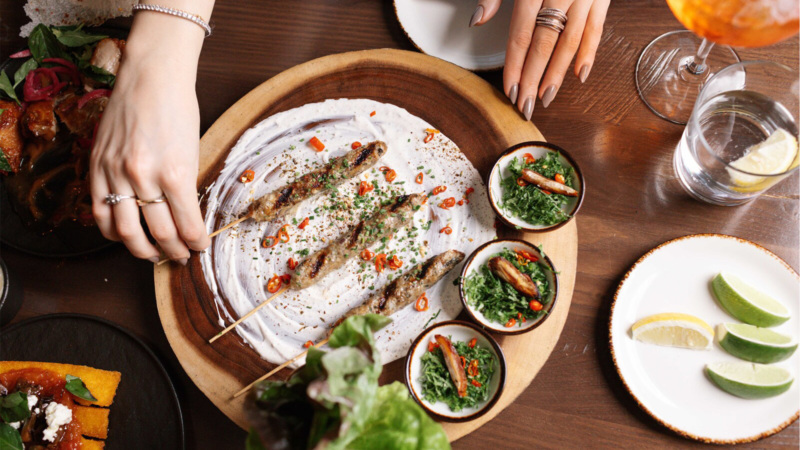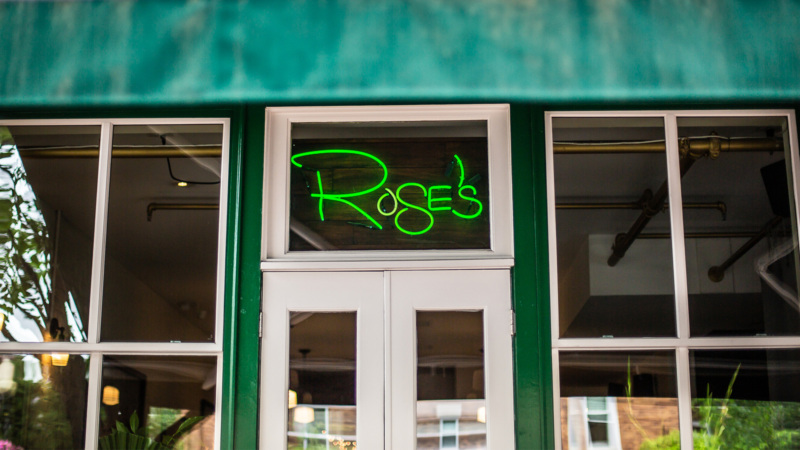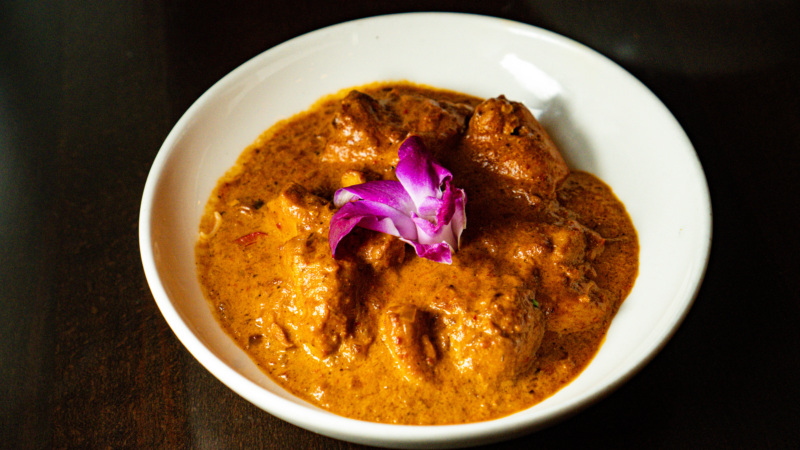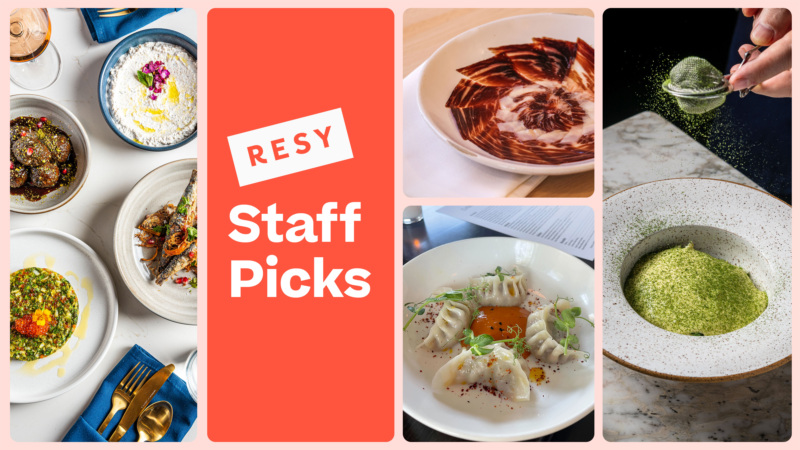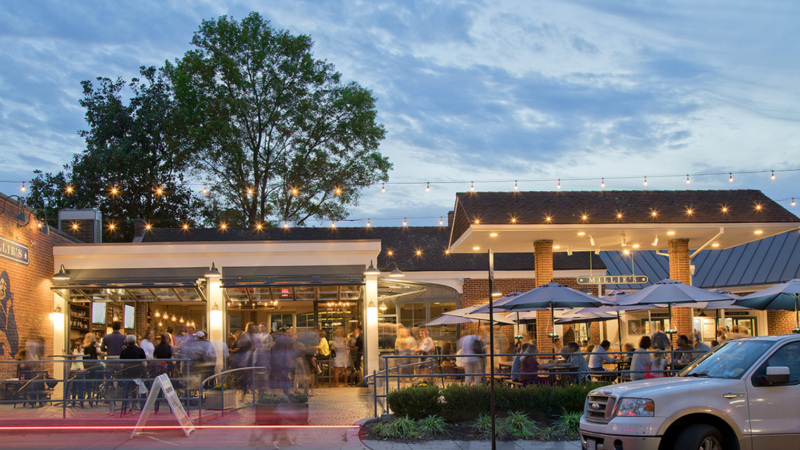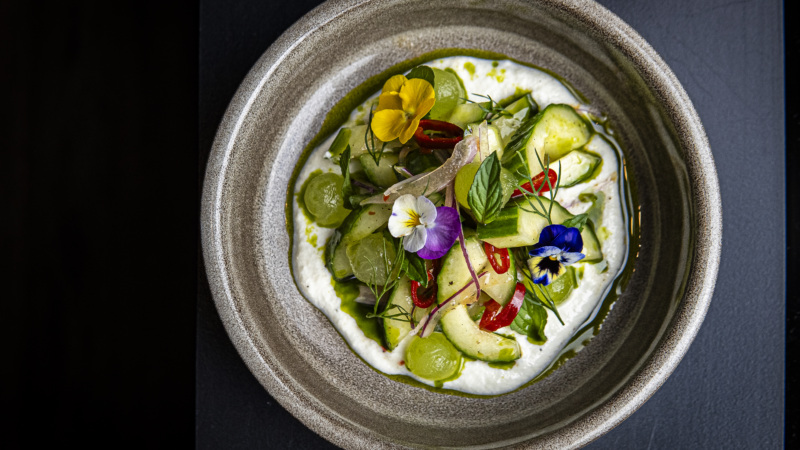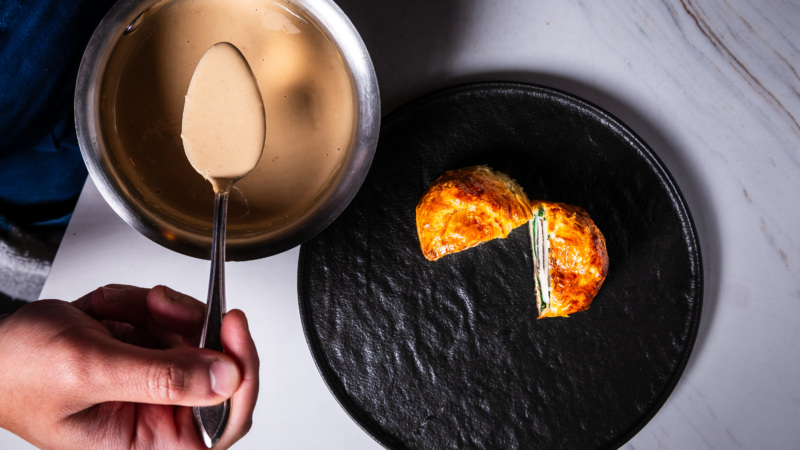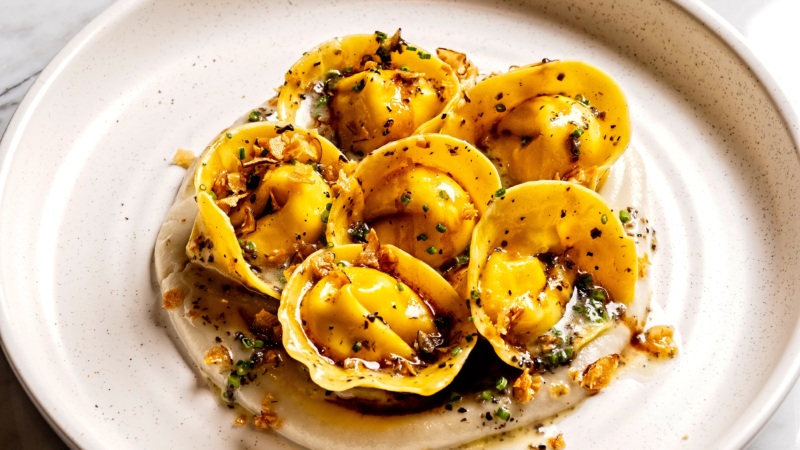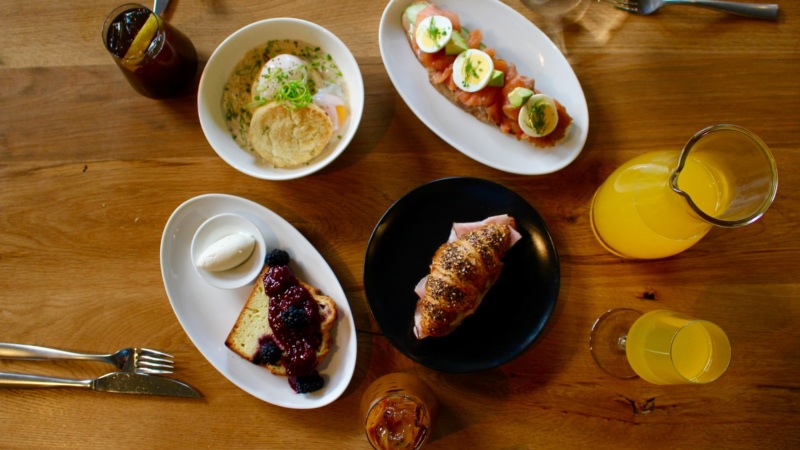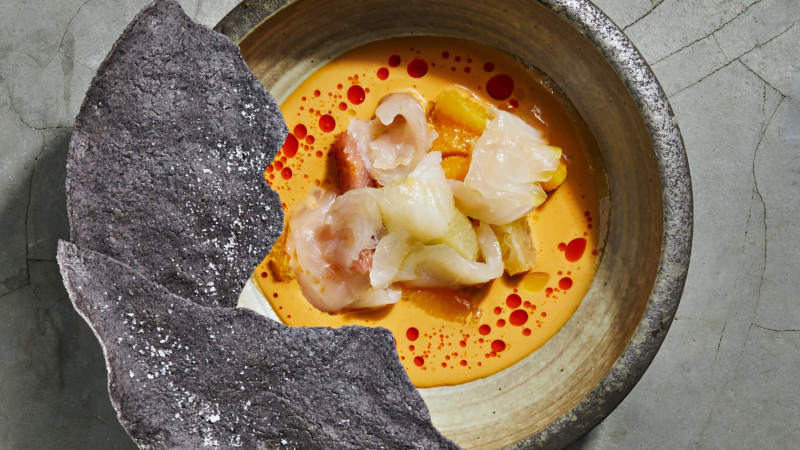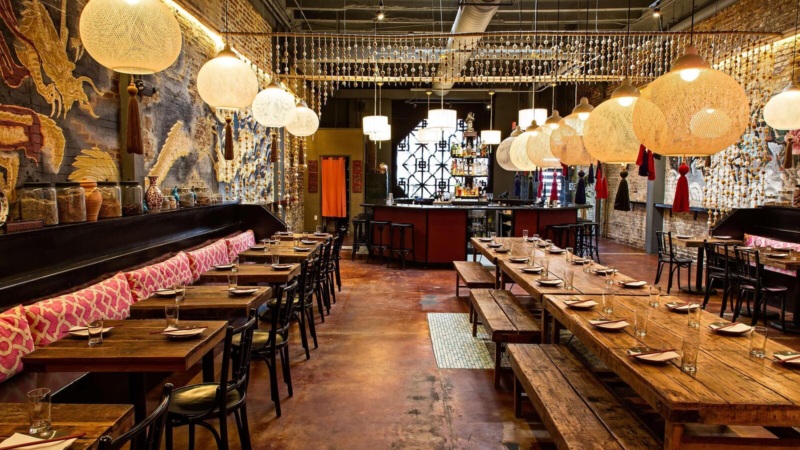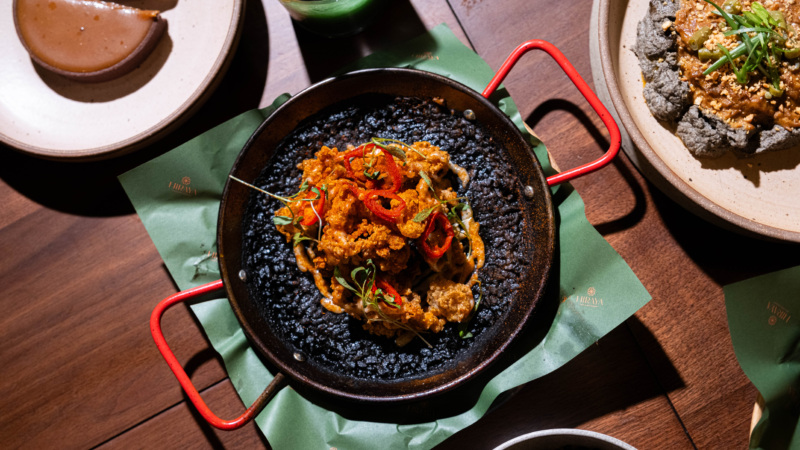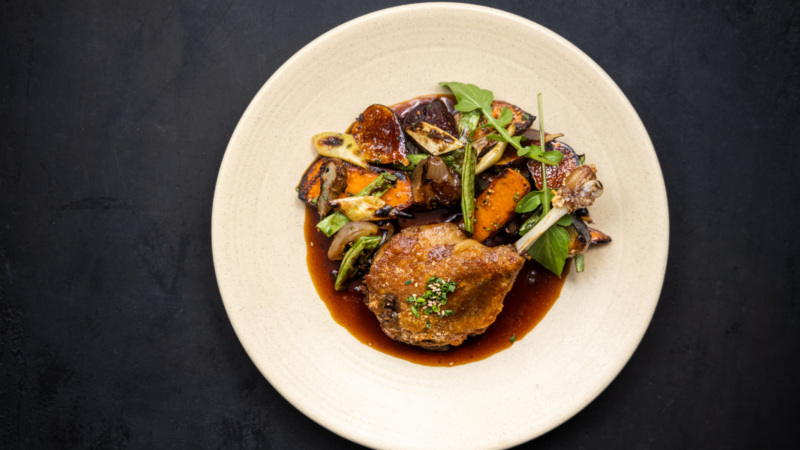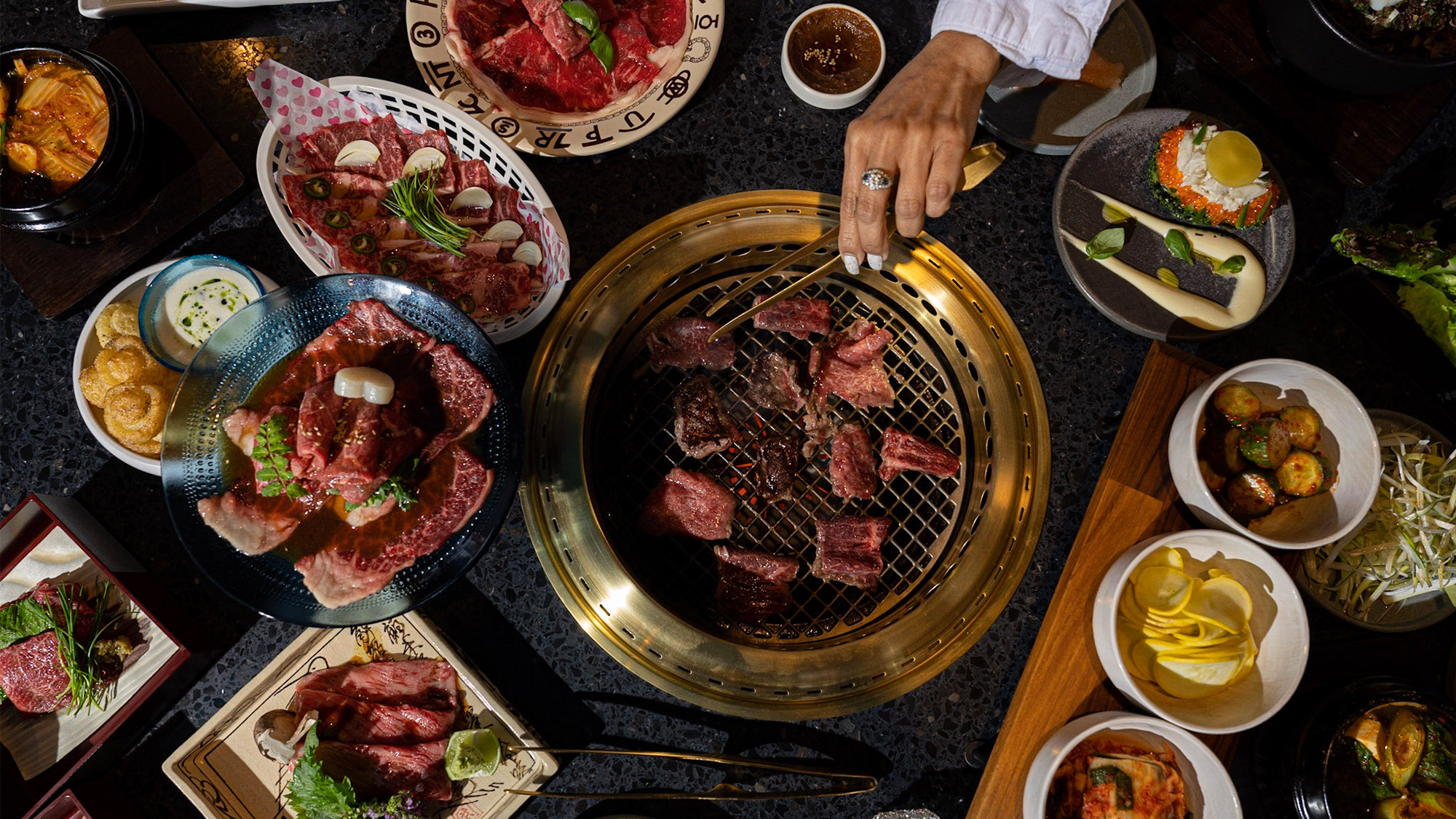
All About D.C.’s New Japanese Food Hall: Love, Makoto
Before you go to a restaurant, what do you want — or need — to know most? In our series, The Rundown, we’re sharing all the essentials about newly opened restaurants.
Here, we’re taking a look at Love, Makoto, a food hall home to two restaurants, a cocktail bar-meets-izakaya, and a food court that’ll bring the best of Japanese food culture just south of Mt. Vernon Triangle. The highly-anticipated opening is officially opening its doors on May 2, and is a partnership between Eric Eden and David Deshaies, the owners behind D.C. darlings L’Ardente and Unconventional Diner, and famed chef Makoto Okuwa.
Here’s everything you need to know before you go.
1. It’s inspired by Japan’s depachika.
If you’ve been to a big city in Japan, you’ve hopefully shopped in one before: the delightful, head-turning food halls sitting in the basements of every luxe Japanese department store. Depachika hold everything from high-end sake bottles and sushi-grade fish to casual bento boxes ready to be picked up on the go.
When Eden brought up the space to his good friend months before the pandemic (he and Okuwa met over 10 years ago at Makoto, Okuwa’s flagship restaurant in Miami), the sheer size of the nearly 20,000-square-foot L-shaped space forced them to think of a concept that went beyond traditional restaurants.
As fate would have it, Okuwa had grown up eating at a depachika in Nagoya, the city he hails from: the one at Mitsukoshi, the department store his father worked at his entire career. It was a natural fit.
“One of my biggest influences is my father,” says Okuwa. “I’ve been very much interested in this multi-unit concept. It’s part of our culture.”
And so, the idea of a depachika-inspired food hall began, with the pandemic giving Okuwa, Eden, and the rest of the team precious time to dream big and properly plan for the scale of it all.
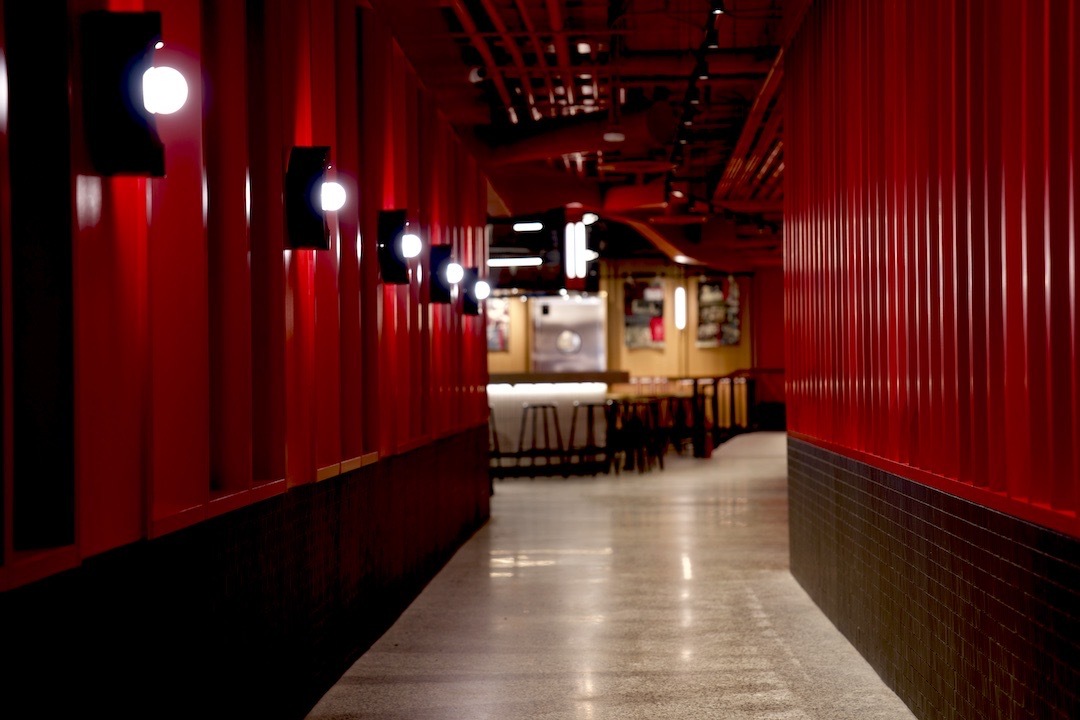
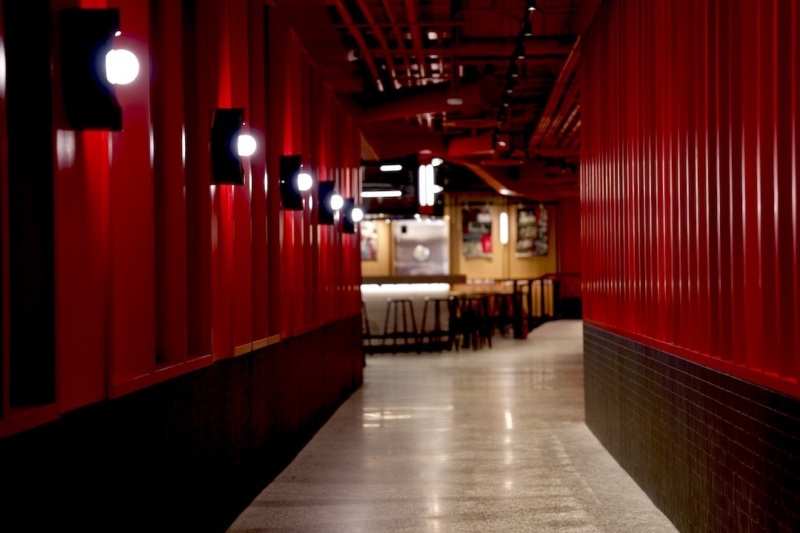
2. First, there’ll be three restaurants, each helmed by an all-star cast.
A project of this size was daunting from the start and Okuwa immediately knew he couldn’t do it alone. His role is akin to that of an orchestra conductor, he says, and he’s enlisted a motley crew of professionals at the top of their respective fields and cuisines to help, starting with acclaimed Japanese chef Takeshi Omae, a friend of Okuwa’s and now Love, Makoto’s executive chef. Together, they’ve assembled an impressive cast of chefs to oversee each of the concepts making up the food hall.
First to open are the three restaurants, which you’ll see as soon as you make your way through the main entrance, a long hallway inspired by the torii gates of Kyoto’s Fushimi Inari shrine.
The first is a sushi restaurant, Dear Sushi, where an omakase starting at $75 will offer both traditional and modern spins on the prestigious Japanese format. For this, Okuwa called on a longtime friend and old coworker, Takeshi Hada, to be the sushi chef — the two met over 25 years ago, working at the popular Tsukimi Sushi restaurant in Nagoya.
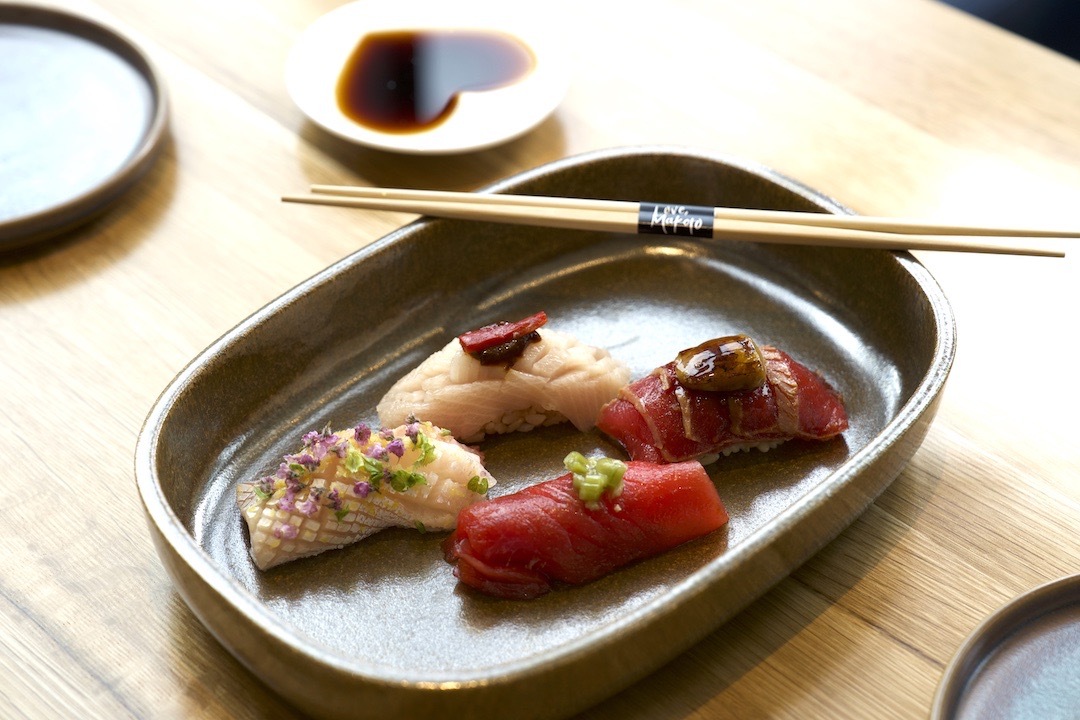
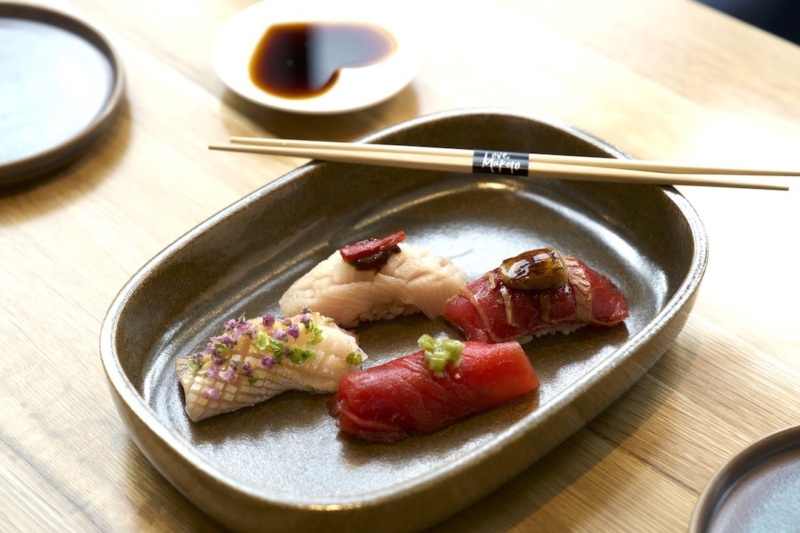
Next is the yakiniku restaurant, Beloved BBQ, helmed by chef Omae, a steakhouse that highlights the best of Japanese and American beef via a meat tasting starting at $85 (think Kobe wagyu and steak from Colorado farms and local Virginia ranchers). “American people know how to cook meat very well and I wanted to use that,” says Okuwa. As such, the tables here are equipped with their own smokeless tabletop grill for DIY cooking.
Completing this trifecta is Hiya Izakaya, a cocktail bar with izakaya-style snacks. On the bar front, you can expect a beverage program zeroing in on highball cocktails, along with sake, wine, and Champagne. Food-wise, Okuwa called on U.S. yakitori expert Blake King to develop the menu, in which chicken skewers and other bites are cooked over a robata grill.
“We are [taking] very seriously what we do here,” Okuwa emphasizes.
And that applies to the food court area, too.
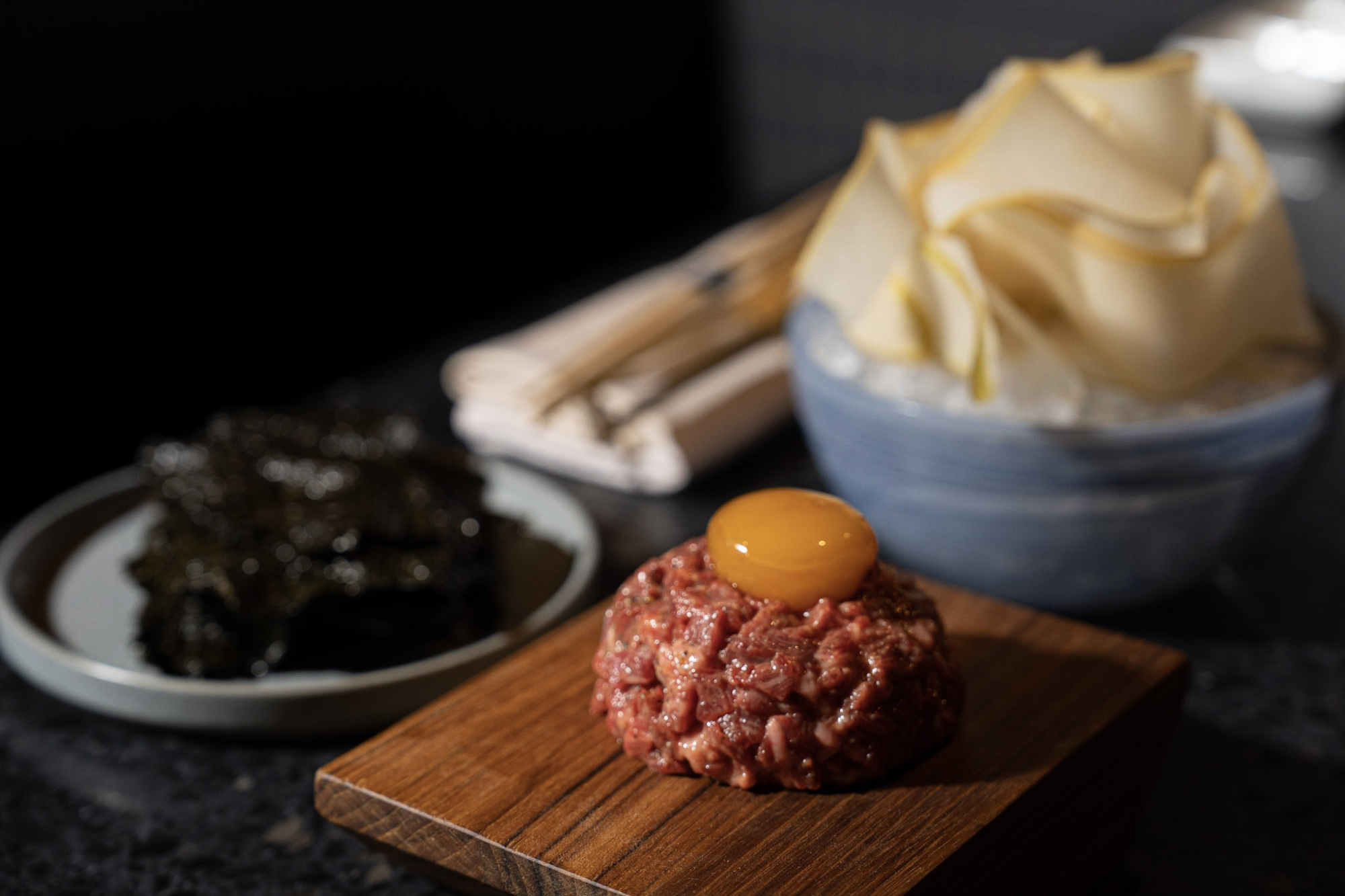
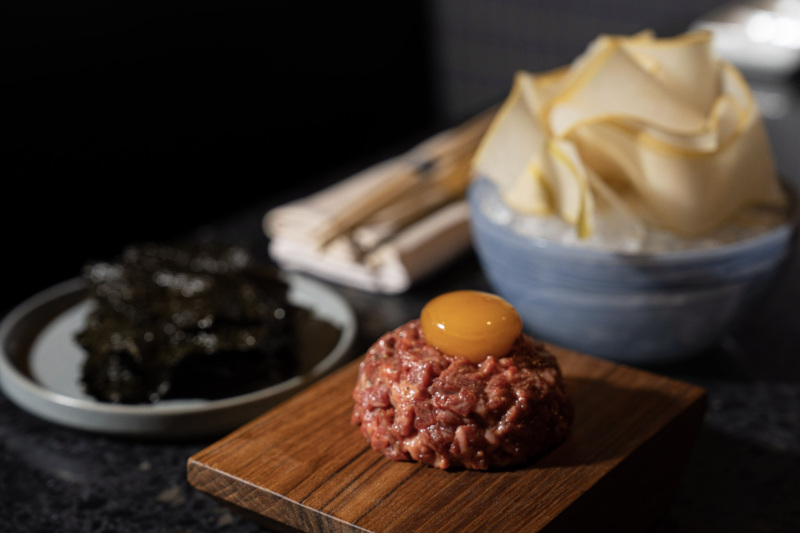
3. The food court will come up next, this summer.
The food court will be opening later this summer, and it is past the restaurants, on the shorter end of the L-shaped space that the depachika spirit lives strongest. Here, you’ll have the option of ordering Japanese fried chicken, curry, maki rolls, bowls of udon and soba and ramen, dumplings, salads, bubble tea, soft serve, and even baked goods, all from your phone (or via touchscreens dispersed throughout the area).
Okuwa and Omae again tapped a network of talent to help. “I’m obviously not a pastry guy,” says Okuwa, so, he brought on another old friend and collaborator, Japanese pastry chef Manabu Inoue, to bring to life the sweets and desserts. The team also went to Shuichi Kotani, a soba pioneer based in New York, “basically the most well-known soba master in America,” says Okuwa, to develop the Japanese noodle menu.
Here, communal seating will reign with enough tables to seat about 70 diners, in addition to a private dining room (which can hold 35 guests seated or 50 standing) should you want to celebrate.
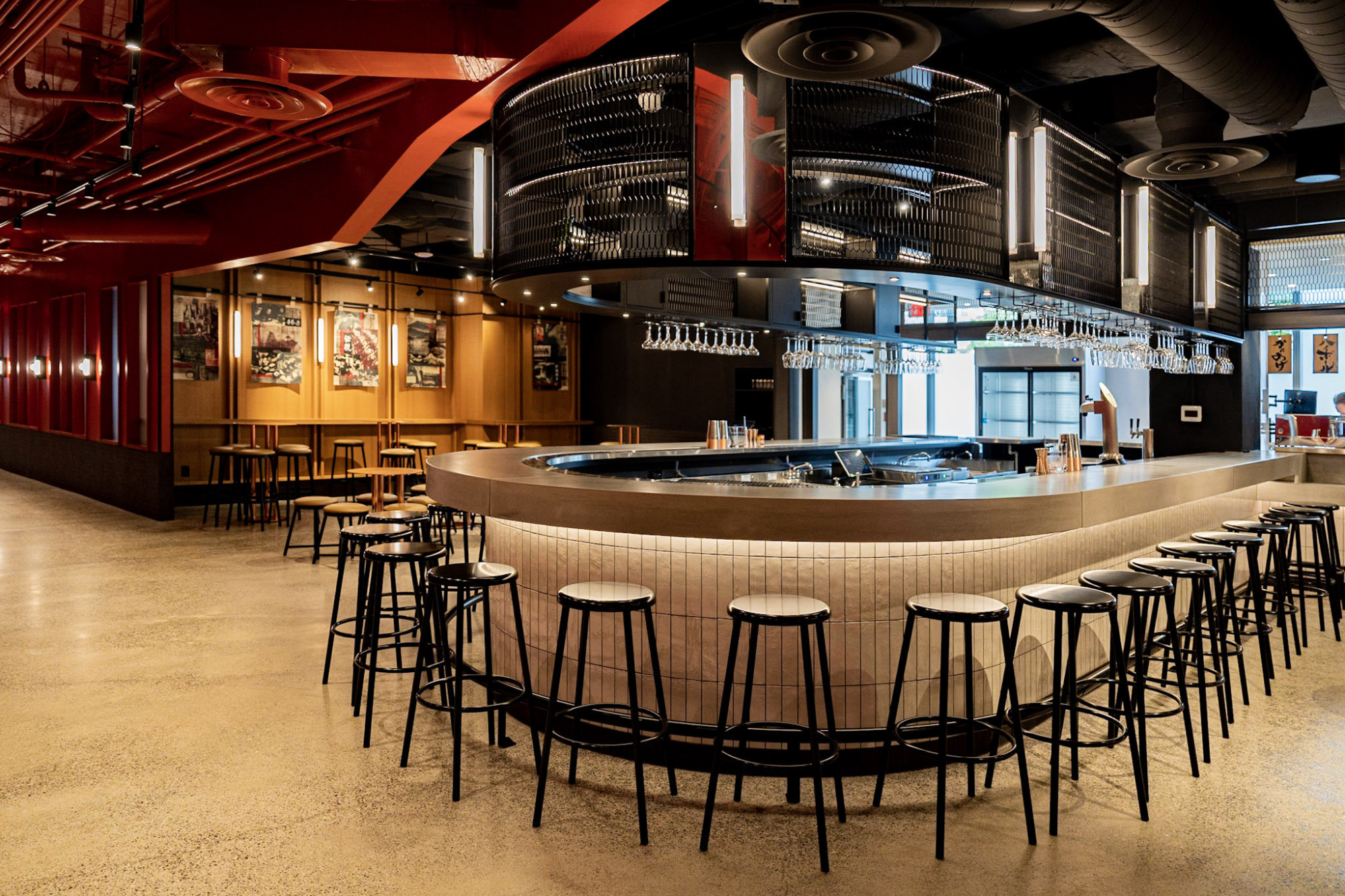
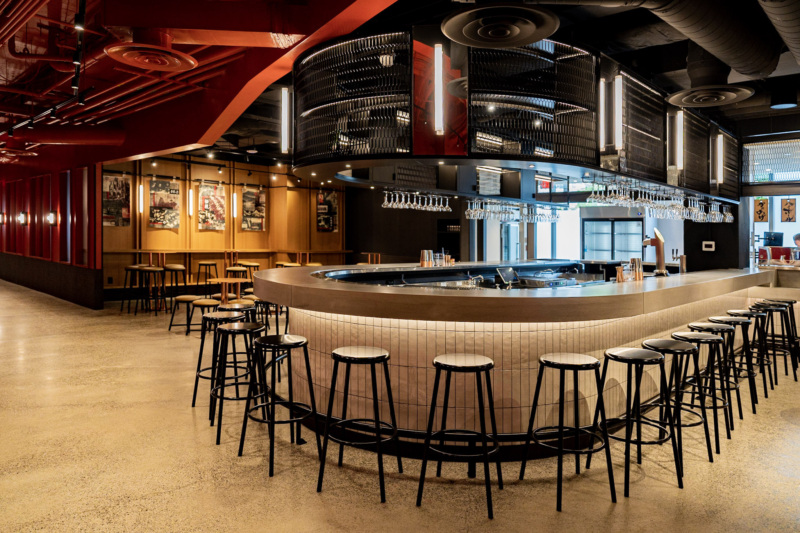
4. This is a homecoming of sorts for chef Okuwa, too.
Before kickstarting his U.S. career with Masaharu Morimoto in Philadelphia and New York, opening up a sushi restaurant in Los Angeles, and partnering with restaurateur Stephen Starr for his namesake restaurant in Miami (with locations in Mexico and Panama), the chef did come to D.C. first when he left Japan and moved to the U.S. in 2001. His green card was sponsored by none other than Sushi Taro’s original owner and his son, now current chef-owner, Nobu Yamazaki.
“When I came here, I wanted to have so many things,” says Okuwa. “I was missing Japanese culture and everything else.” Today, to have his many friends that he’s met throughout the course of his over-two-decade career help him with this passion project, in the city where he got his start, is something of a serendipitous closing of the loop.
“This is something coming from my heart,” he says. “The type of food that we sell is something I want to eat every day.”
Love, Makoto is open Tuesday through Sunday from 5 to 11 p.m.
Noëmie Carrant is Resy’s senior writer. Follow her on Instagram. Follow Resy on Instagram and Twitter, too.






